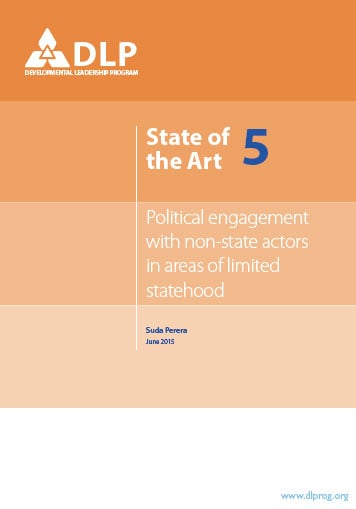Even where there are no functioning state structures, few societies remain ungoverned. Often non-state actors (NSAs) provide the goods, services and protections that the state may – for whatever reason – be unable to deliver to its citizens. NSAs include community-based and civil society groups, humanitarian and development organisations, armed actors and opposition groups, and the private sector and business interests, all working at various levels.
This paper surveys the literature on development and NSAs. It sets out the evidence for the merits of engaging politically with NSAs by incorporating them into governance and statebuilding programmes, and examines the challenges this may pose.
It can be difficult to define some actors that clearly have significant influence but no obvious formal governance role; and attempts to define NSAs beyond the basics of ‘not a state, but exerting influence’ tend to include normative judgements about whether this influence is positive or negative.
The paper finds that how practitioners engage with an NSA often depends on this type of normative judgement. They are also further handicapped by the fact that there is currently no coherent view in the development community about whether donors and practitioners should engage with such actors.
Yet the evidence suggests that truly inclusive and sustainable political settlements will need to involve any NSAs able to exercise significant economic, political, or social influence on the development process, regardless of whether this influence is positive or negative.
Download the full paper below (600 KB), or just the summary (180 KB).










